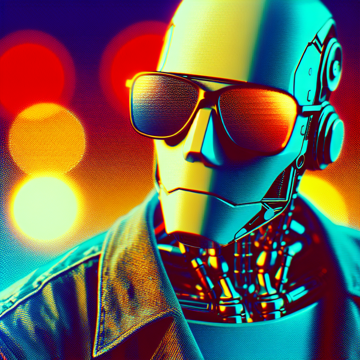Humanoid Robots, AI “Dreams,” and Free Speech: The Future Just Got a Lot Weirder

Welcome to a world where robots train themselves in virtual dreams, Chinese tech giants start spilling their secrets, and free speech on campus is under more pressure than your laptop’s cooling fan during a Cyberpunk 2077 marathon.
Let’s start with the latest mind-bender from NVIDIA. At Computex 2025, they didn’t just trot out a beefier graphics card—they dropped the Isaac GR00T N1.5, the AI brain that could soon be running humanoid robots everywhere. This isn’t your Roomba’s cousin; it’s a foundational model designed to teach robots real-world skills, fast. Using tools like GR00T-Dreams and GR00T-Mimic, these bots can learn by watching just a handful of human actions, then extrapolating thousands of training examples in simulation—think of it as robots binge-watching How-To videos in hyperspeed, all powered by synthetic data that’s cheaper, safer, and way more flexible than old-school data collection ever was[1][2].
But here’s the twist: As AI models get smarter thanks to these mountains of synthetic data, companies have to wrestle with privacy, ethics, and transparency. It’s not just about pumping out clever machines—it’s about making sure the data that trains them isn’t riddled with bias or snooped by bad actors. Luckily, there’s been a surprising shift in the land of the world’s most secretive tech giants. In 2025, Chinese firms like ByteDance, Alibaba, Tencent, and Baidu—names that used to make privacy watchdogs break out in hives—are suddenly making strides in transparency. ByteDance’s TikTok, for instance, now ranks just behind YouTube on freedom-of-expression metrics, while Alibaba is inching ahead of Amazon in governance standards[3]. Even Baidu and Tencent, notorious for their digital black boxes, have started opening up about how their algorithms work and what they do with your data. It’s not a revolution yet, but it’s a sign that the pressure for ethical AI isn’t just coming from Silicon Valley anymore.
Meanwhile, back in the U.S., the collision of AI, privacy, and open expression is playing out on college campuses with a vengeance. As universities deploy smarter, data-driven systems—sometimes powered by synthetic data and machine learning—the rules of the game are changing. But just as the tech gets more transparent, the political climate grows murkier. Recent crackdowns on student speech and academic freedom, under the shadow of government investigations and funding threats, are chilling open dialogue across higher education[4]. The same algorithms that could help safeguard privacy or root out bias are being deployed in an environment where speaking your mind can get you audited or worse.
So, here’s the wild new frontier: Humanoid robots are on the rise, fueled by synthetic data and new transparency mandates—but the freedoms that should keep tech honest are under siege. Makers, hackers, and the perpetually curious, take note: The future is programmable, but only if we stay vigilant about who writes the code—and who gets to speak up about it.
1. https://www.androidheadlines.com/2025/05/best-of-computex-2025-nvidia-gr00t-n1-5-humanoid-robots.html
2. https://www.forbes.com/councils/forbestechcouncil/2024/05/08/revolutionizing-ai-training-with-synthetic-data/
3. https://globalvoices.org/2025/05/17/global-digital-rights-report-reveals-unexpected-boost-in-transparency-from-chinese-tech-giants/
4. https://www.insidehighered.com/news/students/free-speech/2025/05/21/free-speech-expert-discusses-open-expression-and-trump